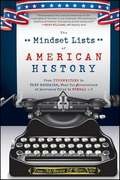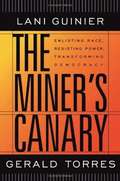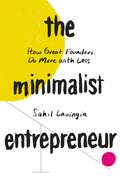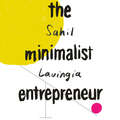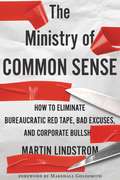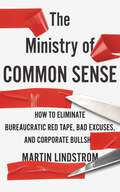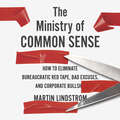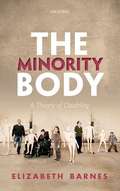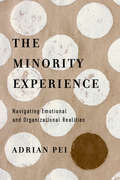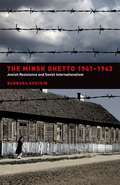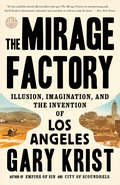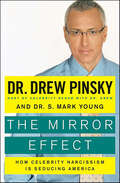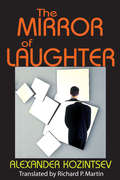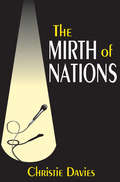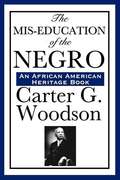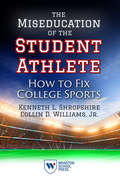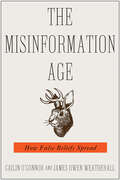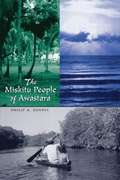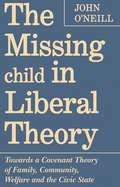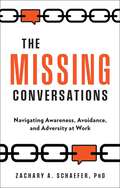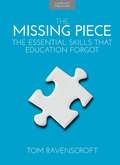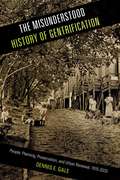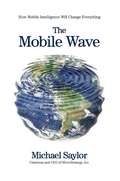- Table View
- List View
The Mindset Lists of American History: From Typewriters to Text Messages, What Ten Generations of Americans Think Is Normal
by Tom Mcbride Ron NiefSnapshots of the U. S. 's last nine generations--from the creators of the Mindset List media sensation Just as high school graduates in 1957 couldn't imagine life without zippers, those of 2009 can't imagine having to enter phone booths and deposit coins in order to call someone from the street corner. Every August, the Mindset List highlights the cultural touchstones that have shaped the lives of that year's incoming college class. Now this fascinating book extends the Mindset List approach to dramatize what it was like to grow up for every American generation since 1880, showcasing the remarkable changes in what Americans have considered "normal" about the world around them. Expands Tom McBride and Ron Nief's popular annual Mindset Lists to explore the mindset of nine generations of Americans, from 1880 to the future high school graduates of 2030 Offers a novel and absorbing way to understand the frame of reference of Americans through history, whether it's the high school grads of 1918, who viewed riding an elevator as a thrill second only to roller coasters, or those of 2009, who have always thought of "friend" as an active verb Puts a human face on the evolution of historical changes related to technology, the struggle for rights and equality, the calamities of war and depression, and other areas The annual Mindset List garners extensive media attention, including on Today, The Early Show, the NBC Nightly News, CNN, and Fox as well as in the Wall Street Journal, the New York Times, USA Today, the Los Angeles Times, Time magazine, and hundreds of international publications Whatever your own generational mindset, this book will give you an entertaining and important new tool for understanding the unique perspective and experience of Americans over more than a hundred and fifty years.
The Miner's Canary: Enlisting Race, Resisting Power, Transforming Democracy (The Nathan I Huggins Lectures)
by Lani Guinier Gerald TorresLike the canaries that alerted miners to a poisonous atmosphere, issues of race point to underlying problems in society that ultimately affect everyone, not just minorities. Addressing these issues is essential. Ignoring racial differences--race blindness--has failed. Focusing on individual achievement has diverted us from tackling pervasive inequalities. Now, in a powerful and challenging book, Lani Guinier and Gerald Torres propose a radical new way to confront race in the twenty-first century. Given the complex relationship between race and power in America, engaging race means engaging standard winner-take-all hierarchies of power as well. Terming their concept political race, Guinier and Torres call for the building of grass-roots, cross-racial coalitions to remake those structures of power by fostering public participation in politics and reforming the process of democracy. Their illuminating and moving stories of political race in action include the coalition of Hispanic and black leaders who devised the Texas Ten Percent Plan to establish equitable state college admissions criteria, and the struggle of black workers in North Carolina for fair working conditions that drew on the strength and won the support of the entire local community. The aim of political race is not merely to remedy racial injustices, but to create truly participatory democracy, where people of all races feel empowered to effect changes that will improve conditions for everyone. In a book that is ultimately not only aspirational but inspirational, Guinier and Torres envision a social justice movement that could transform the nature of democracy in America.
The Minimalist Entrepreneur: How Great Founders Do More with Less
by Sahil Lavingia'Pay attention' - Jason Fried, founder and CEO of Basecamp, bestselling author of ReWork A revolutionary roadmap for building startups that go the distance Cracks are forming in the myth of the VC-funded, IPO-driven billion-dollar company. They're unprofitable, unethical and unsustainable - so why bother chasing unicorns? The Minimalist Entrepreneur is the manifesto for a new generation of founders who would rather build great companies than big ones. Packed with hard-won, battle-tested lessons from Lavingia's own journey of building Gumroad, The Minimalist Entrepreneur teaches founders how to start from anywhere to build any kind of software-enabled business. You will learn how to: resist investments that set you up to fail; run a tight ship amid the rise of the gig economy and remote work; develop and release products without failing fast or often; get to profitability and stay there. The Minimalist Entrepreneur offers essential knowledge for every founder aspiring to build a business worth building.
The Minimalist Entrepreneur: How Great Founders Do More with Less
by Sahil Lavingia'Pay attention' - Jason Fried, founder and CEO of Basecamp, bestselling author of ReWork A revolutionary roadmap for building startups that go the distance Cracks are forming in the myth of the VC-funded, IPO-driven billion-dollar company. They're unprofitable, unethical and unsustainable - so why bother chasing unicorns? The Minimalist Entrepreneur is the manifesto for a new generation of founders who would rather build great companies than big ones. Packed with hard-won, battle-tested lessons from Lavingia's own journey of building Gumroad, The Minimalist Entrepreneur teaches founders how to start from anywhere to build any kind of software-enabled business. You will learn how to: resist investments that set you up to fail; run a tight ship amid the rise of the gig economy and remote work; develop and release products without failing fast or often; get to profitability and stay there. The Minimalist Entrepreneur offers essential knowledge for every founder aspiring to build a business worth building.
The Ministry of Common Sense: How to Eliminate Bureaucratic Red Tape, Bad Excuses, and Corporate BS
by Martin LindstromWALL STREET JOURNAL Bestseller A humorous yet practical five-step guide to ridding ourselves—and our companies—of bureaucratic bottlenecks and red tape During the COVID-19 pandemic, the TSA is allowing passengers to board planes with unlimited amounts of hand sanitizer, while maintaining its 3.4-ounce limit on all other liquids. You need a chainsaw to pry open your new pair of headphones from their package. Your eighth Zoom meeting of the day keeps freezing, and if you hear &“No, wait; no, you go first&” again, you will implode. But first you have to sit through an endless Power Point presentation that everyone claims they&’ve read, no one has, and that could have been summarized in one page. What has happened to common sense? And how can we get it back? Companies, it seems, have become so entangled in their own internal issues, and further beset by reams of invisible red tape, that they&’ve lost sight of their core purpose. Inevitably, they pay the price. Best-selling author Martin Lindstrom combines numerous real‑life examples of corporate common sense gone wrong with his own ingenious plan for restoring logic—and sanity—to the companies and people that need it most. A must-read for today&’s executives, managers, and employees, The Ministry of Common Sense is funny, entertaining, and immensely practical.
The Ministry of Common Sense: How to Eliminate Bureaucratic Red Tape, Bad Excuses, and Corporate Bullshit
by Martin LindstromWhere's the common sense? During the COVID-19 pandemic, the TSA is allowing passengers to board planes with unlimited amounts of hand sanitizer, while maintaining its 3.4-ounce limit on all other liquids. You need a chainsaw to pry open your new pair of headphones from their package. Your eighth Zoom meeting of the day keeps freezing, and if you hear "No, wait; no, you go first" again, you will implode. But first you have to sit through an endless PowerPoint presentation that everyone claims they've read - no one has - that could have been summarized in one page.What has happened to common sense? And how can we get it back? Companies, it seems, have become so entangled in their own internal issues and beset by reams of invisible red tape (and frozen screens) that they've lost sight of their purpose and culture. Inevitably, we pay the price.New York Times best-selling author Martin Lindstrom combines numerous real-life examples of corporate common sense gone wrong with his own ingenious plan for restoring logic - and sanity - to the companies and people who need it most. A must-read for today's executives, managers, and office workers, The Ministry of Common Sense is funny, entertaining, and immensely practical.'Essential reading for all of us who feel bogged down in workplace bureaucracy and wish to improve our quality of life at work.' - Arianna Huffington, Founder & CEO, Thrive Global'Anyone who has ever worked in a big corporate structure will be nodding along and underlining every page in this book...Martin Lindstrom...offers a plan for eradicating internal nonsense - the sorts of risk-averse protocols and admin tasks that show a company has lost all sight of common sense. There are lots of good examples and farcical anecdotes here.' - Financial Times Business Book of the Month
The Ministry of Common Sense: How to Eliminate Bureaucratic Red Tape, Bad Excuses, and Corporate Bullshit
by Martin Lindstrom CompanyA humorous yet practical five-step guide to ridding ourselves - and our companies - of the bureaucratic bottlenecks and red tape that plagues every office.How often in your life do you spend time following a rule or a procedure that makes no sense, offers little or no advantage, and slows you down in the process? In a world of work governed by a system of well-intentioned rules, that's something that happens all too often.In this audiobook Martin Lindstrom - a global leader in branding and expert in organisational culture - takes you behind the scenes at companies which are paralyzed and demoralised by a breakdown in common sense. Lindstrom shares a five-step process for identifying and repairing these lapses, showing that restoring common sense always cuts costs, boosts engagement and increases customer retention.The stories in The Ministry of Common Sense are entertaining, troubling, eye-opening and recognisable to anyone who works in or leads an organisation of any size. It's easy to get blinded to problems right in front of you - but setting up your own Ministry of Common Sense will mean less time wasted on unnecessary things, less mistakes and misunderstandings, and a better way of working for all.(P) 2020 Houghton Mifflin Harcourt
The Minority Body: A Theory of Disability
by Elizabeth Barnes<p>Elizabeth Barnes argues compellingly that disability is primarily a social phenomenon--a way of being a minority, a way of facing social oppression, but not a way of being inherently or intrinsically worse off. This is how disability is understood in the Disability Rights and Disability Pride movements; but there is a massive disconnect with the way disability is typically viewed within analytic philosophy. <p>The idea that disability is not inherently bad or sub-optimal is one that many philosophers treat with open skepticism, and sometimes even with scorn. The goal of this book is to articulate and defend a version of the view of disability that is common in the Disability Rights movement. Elizabeth Barnes argues that to be physically disabled is not to have a defective body, but simply to have a minority body.</p>
The Minority Experience: Navigating Emotional and Organizational Realities
by Adrian PeiIt's hard to be in the minority. If you're the only person from your ethnic or cultural background in your organization or team, you probably know the challenges of being misunderstood or marginalized. You might find yourself inadvertently overlooked or actively silenced. Even when a work environment is not blatantly racist or hostile, people of color often struggle to thrive—and may end up leaving the organization. Being a minority is not just about numbers. It's about understanding pain, power, and the impact of the past. Organizational consultant Adrian Pei describes key challenges ethnic minorities face in majority-culture organizations. He unpacks how historical forces shape contemporary realities, and what both minority and majority cultures need to know in order to work together fruitfully. If you're a cultural minority working in a majority culture organization, or if you're a majority culture supervisor of people from other backgrounds, learn the dynamics at work. And be encouraged that you can help make things better so that all can flourish.
The Minsk Ghetto, 1941–1943: Jewish Resistance and Soviet Internationalism
by Barbara EpsteinBarbara Epstein chronicles the history of a Communist-led resistance movement inside the Minsk ghetto, which enabled thousands of ghetto Jews to flee to the surrounding forests where they joined partisan units fighting the Germans. This book captures the texture of life inside and outside the Minsk ghetto, evoking the harsh conditions, the life-threatening situations, and the friendships that helped many escape almost certain death.
The Mirage Factory: Illusion, Imagination, and the Invention of Los Angeles
by Gary KristFrom bestselling author Gary Krist, the story of the metropolis that never should have been and the visionaries who dreamed it into reality Little more than a century ago, the southern coast of California—bone-dry, harbor-less, isolated by deserts and mountain ranges—seemed destined to remain scrappy farmland. Then, as if overnight, one of the world’s iconic cities emerged. At the heart of Los Angeles’ meteoric rise were three flawed visionaries: William Mulholland, an immigrant ditch-digger turned self-taught engineer, designed the massive aqueduct that would make urban life here possible. D.W. Griffith, who transformed the motion picture from a vaudeville-house novelty into a cornerstone of American culture, gave L.A. its signature industry. And Aimee Semple McPherson, a charismatic evangelist who founded a religion, cemented the city’s identity as a center for spiritual exploration. All were masters of their craft, but also illusionists, of a kind. The images they conjured up—of a blossoming city in the desert, of a factory of celluloid dreamworks, of a community of seekers finding personal salvation under the California sun—were like mirages liable to evaporate on closer inspection. All three would pay a steep price to realize these dreams, in a crescendo of hubris, scandal, and catastrophic failure of design that threatened to topple each of their personal empires. Yet when the dust settled, the mirage that was LA remained. Spanning the years from 1900 to 1930, The Mirage Factory is the enthralling tale of an improbable city and the people who willed it into existence by pushing the limits of human engineering and imagination.
The Mirror Effect: How Celebrity Narcissism Is Endangering Our Families—and How to Save Them
by Drew Pinsky S. Mark YoungIn the eye-opening New York Times bestseller, The Mirror Effect, widely respected addiction and behavior specialist and producer/host of Celebrity Rehab with Dr. Drew on VH1, Dr. Drew Pinsky takes a hard look at the profound changes blogging, tweeting, tabloids, and reality TV are having on the American way of life. An important wake up call for every parent, co-written with Dr. S. Mark Young, The Mirror Effect is a groundbreaking exploration of celebrity narcissism and how it is damaging our culture and our children.
The Mirror of Laughter
by Alexander KozintsevThe Mirror of Laughter presents a theory of humor and laughter by examining their relationship to human behaviors. Kozintsev is especially interested in the relationship between biological and cultural factors that influence behaviors. He divides his work into four chapters, the first of which establishes a theme of the book, focusing on the study of meaning from the perspective of philosophy and psychology, while examining linguistic theories of humor.The second chapter examines biological data regarding laughter and the evolutionary origins of laughter and humor. It demonstrates the author's interest in studying humor objectively by detailing physiological reactions and underlying psychological issues. The third section on play, including linguistic play, distinguishes between orderly and disorderly play. While orderly play has no biological roots and is synonymous with culture, disorderly play is rooted in the pre-human past. The final chapter discusses the conflict between culture and nature and how culture has transformed the original semantics of laughter.Kozintsev seeks to understand the relationship between the biological, cultural, and social origins of humor and, from here, he seeks to create new understanding that only the alliance of several disciplines could provide. All of this is done while the author challenges many popular ideas of humor, such as that humor is inherently related to hostility. Originally written in Russian, this work makes great strides towards its goal, and it does so in an interesting and enlightening way.
The Mirth of Nations
by Christie DaviesThe Mirth of Nations is a social and historical study of jokes told in the principal English-speaking countries. It is based on use of archives and other primary sources, including old and rare joke books. Davies makes detailed comparisons between the humor of specific pairs of nations and ethnic and regional groups. In this way, he achieves an appreciation of the unique characteristics of the humor of each nation or group.A tightly argued book, The Mirth of Nations uses the comparative method to undermine existing theories of humor, which are rooted in notions of hostility, conflict, and superiority, and derive ultimately from Hobbes and Freud. Instead Davies argues that humor merely plays with aggression and with rule-breaking, and that the form this play takes is determined by social structures and intellectual traditions. It is not related to actual conflicts between groups. In particular, Davies convincingly argues that Jewish humor and jokes are neither uniquely nor overwhelmingly self-mocking as many writers since Freud have suggested. Rather Jewish jokes, like Scottish humor and jokes are the product of a strong cultural tradition of analytical thinking and intelligent self-awareness.The volume shows that the forty-year popularity of the Polish joke cycle in America was not a product of any special negative feeling towards Poles. Jokes are not serious and are not a form of determined aggression against others or against one's own group. The Mirth of Nations is readable as well as revisionist. It is written with great clarity and puts forward difficult and complex arguments without jargon in an accessible manner. Its rich use of examples of all kinds of humor entertains the reader, who will enjoy a great variety of jokes while being enlightened by the author's careful explanations of why particular sets of jokes exist and are immensely popular. The book will appeal to general readers as well as those in cultural stu
The Mis-Education of the Negro
by Carter G. WoodsonThe Mis-Education of the Negro is one of the most important books on education ever written. Carter G. Woodson shows us the weakness of Euro-centric based curriculums that fail to include African American history and culture. This system mis-educates the African American student, failing to prepare them for success and to give them an adequate sense of who they are within the system that they must live. Woodson provides many strong solutions to the problems he identifies. A must-read for anyone working in the education field.
The Miseducation of the Student Athlete: How to Fix College Sports
by Kenneth L. Shropshire Collin D. Williams Jr.The student-athlete’s life: practice, gym, weight room, film review, repeat. Simply put, sports come first. Academics is a distant second. As the revenues generated by big-time college sports continue to skyrocket, virtually all of the debate involves whether (and how much) student-athletes should be paid for play. Kenneth L. Shropshire and Collin D. Williams, Jr., argue that ”student” has to come first in student-athlete: the focus should be on prioritizing a meaningful education.In The Miseducation of the Student Athlete: How to Fix College Sports, Shropshire and Williams draw on new research to reveal that it has become increasingly difficult for college athletes to balance school and sports, much less a social life, leading to serious economic, professional, and emotional consequences for young people. Given that fewer than 2% of all college men’s basketball and football players will play at the professional level, the other 98% of student-athletes must be prepared to find and perform well in jobs outside of their respective field of play.In this bold call to action, Shropshire and Williams explain how we got here and what can be done about it. They lay out The Student-Athlete Manifesto, a roadmap to increase the likelihood that student-athletes can succeed both on and off the field. They also offer a Meaningful Degree Model, which ensures education pays for everyone, along with stories of success that show it is possible to be both a student and an athlete.A critical read for student-athletes, sports leadership, policy makers, and anyone who loves college sports, The Miseducation of the Student Athlete has the potential to disrupt college sport and create lasting change.
The Misinformation Age: How False Beliefs Spread
by James Owen Weatherall Cailin O'Connor“Empowering and thoroughly researched, this book offers useful contemporary analysis and possible solutions to one of the greatest threats to democracy.” —Kirkus ReviewsEditors’ choice, The New York Times Book ReviewRecommended reading, Scientific AmericanWhy should we care about having true beliefs? And why do demonstrably false beliefs persist and spread despite bad, even fatal, consequences for the people who hold them?Philosophers of science Cailin O’Connor and James Weatherall argue that social factors, rather than individual psychology, are what’s essential to understanding the spread and persistence of false beliefs. It might seem that there’s an obvious reason that true beliefs matter: false beliefs will hurt you. But if that’s right, then why is it (apparently) irrelevant to many people whether they believe true things or not?The Misinformation Age, written for a political era riven by “fake news,” “alternative facts,” and disputes over the validity of everything from climate change to the size of inauguration crowds, shows convincingly that what you believe depends on who you know. If social forces explain the persistence of false belief, we must understand how those forces work in order to fight misinformation effectively.“[The authors] deftly apply sociological models to examine how misinformation spreads among people and how scientific results get misrepresented in the public sphere.” —Andrea Gawrylewski, Scientific American“A notable new volume . . . The Misinformation Age explains systematically how facts are determined and changed—whether it is concerning the effects of vaccination on children or the Russian attack on the integrity of the electoral process.” —Roger I. Abrams, New York Journal of Books
The Miskitu People of Awastara
by Philip A. Dennis"Most anthropologists who have lived among other people . . . feel a periodic need to go back," writes Philip A. Dennis in the introduction to this book. "Fieldwork gives you a stake in the people themselves, a set of relationships that last the rest of your life . . . and when the time is right, it is important to go back. " Dennis first journeyed to Awastara, a village on the northeastern coast of Nicaragua, during 1978-1979 as a postdoctoral student. He had come to study a culture-bound syndrome in which young women are possessed by devils. In the process, he became fascinated by other aspects of Miskitu culture-turtle fishing, Miskitu Christianity, community development efforts-the whole pattern of Miskitu community life. He also formed deep friendships to carry into the future. Twenty years later he was able to return and continue his ethnographic work. Utilizing ideas from recent interpretive anthropology and a vivid writing style, Dennis describes food habits, language, health practices, religious beliefs, and storytelling, inviting the reader to experience life in Awastara along with him. Building upon earlier work by Mary Helms, Bernard Nietschmann, Edmund Gordon, and Charles Hale, The Miskitu People of Awastara makes its own original contribution. It is the first full-length study of a coastal Miskitu community north of Puerto Cabezas, contrasting life before and after the war years of the 1980s. It will be a valuable addition to the literature on this indigenous group and should appeal to anthropologists and other social scientists, as well as all readers interested in peoples of the Caribbean coast.
The Missing Child in Liberal Theory: Towards a Covenant Theory of Family, Community, Welfare and the Civic State (The Royal Society of Canada Special Publications)
by John O'NeillThe Missing Child in Liberal Theory opens public discourse on what it is Canadians hold in common through their provision of civic assurances to children and families at risk. John O'Neill presents a strongly-worded critique of the dominant discourse of the market society. He observes the link between 'duty free' capitalism and minimal civic obligations. This book calls for a covenant society where civility and reciprocity are underwritten by a second generation concept of the Canadian welfare state that will not abandon children to disastrous prospects in a market society.Confronting the current call for a leaner and meaner response to global competitiveness, O'Neill challenges concepts of liberalism and communitarianism. In their place he proposes a covenant concept of state, community, and family assurances to derive from our common provision of a civic endowment that we undertake to sustain now and for future generations of Canadians.O'Neill argues that if Canada is to survive as a national community capable of responding to the global market, we must reaffirm the civic foundations of the state. If we fail to do this, we will not have a leaner society, only a meaner one. This society will be hostile to capitalism and socialism alike. If we can rededicate the Canadian commons to the well-being of the civic person, Canada will contribute a model of survival and governance among the nations of the twenty-first century.
The Missing Conversations: Navigating Awareness, Avoidance, and Adversity at Work
by Zachary A. SchaeferThe Missing Conversations will give you and your team a framework to have higher quality conversations that directly and positively impact your business.What you don&’t know can hurt you—and what you don&’t talk about can absolutely destroy your team, your organization, and your career! In The Missing Conversations, speaker and leadership coach Zach &“Dr. Z&” Schaefer cracks open the playbook he&’s used with some of America&’s best and brightest companies to reveal the critical but all-too-often overlooked conversations that can make or break an organization. Drawing on his fifteen years of experience working with high-power, hard-charging executives and team leaders, Dr. Z examines more than forty key conversations you are probably not having. You&’ll discover: The impact the leader&’s &“echo&” has on employees as it reverberates throughout the organization. How to prevent team member burnout by recognizing their accomplishments while giving them a new goal to shoot for. The power of embracing effort itself as a talent that leaders can recognize and encourage in their teams. Why so many leaders allow groupthink and the &“disease to please&” to stifle productive problem solving and constructive disagreement. How to harness conflict as a catalyst for growth through healthy confrontation. Why team members and peers often feel blindsided by feedback and constructive criticism. In this book, Dr. Z reveals how addressing the root causes of communication breakdowns—lack of awareness, avoidance, and adversity—empowers leaders to unlock their team's full potential, drive innovation, and achieve sustainable success. If you&’re ready to create a workplace where open dialogue and collaboration flourish, it&’s time to start having The Missing Conversations!
The Missing Piece: The Essential Skills That Education Forgot
by Tom RavenscroftThere is a fundamental gap in education. While we focus on building knowledge and securing good grades there is something missing. All of us, whatever we do, need a core set of skills which go beyond the academic - to work with others, to manage ourselves, to communicate effectively, and to creatively solve problems. We might call them different things but we draw on them as much as numeracy or literacy. Tom Ravenscroft knows them as the enterprise skills. If we need them, our students need them even more. They underpin effective learning in the classroom. They stop students dropping out at university. They are more highly valued than academic grades by employers. They are a foundation for successful entrepreneurship. They are the enablers of civic engagement and social mobility. When we look to the next decades, in a world of increased automation, fragmented jobs and the need for constant learning it is these skills that will really set our children and young people up for future success. Yet as an education system, we behave as if they cannot or should not be taught. But they can be, and they must be. Tom Ravenscroft has writen this book almost a decade after he set up Enabling Enterprise as a social enterprise. He was a secondary school teacher and the Enabling Enterprise programme was for the students in his inner-city classroom. They were not learning enough in school, and were in no sense set up for the rest of their lives. Over the last ten years, he has had the enormous privilege of leading a growing team of teachers and has worked with hundreds of classroom teachers, thousands of employer volunteers and over 200,000 students. He has seen these students build those skills with the same rigour and focus as any other academic learning. And he has seen that when they are mastered, we truly allow our students to achieve their potential.
The Missing Piece: The Essential Skills That Education Forgot
by Tom RavenscroftThere is a fundamental gap in education. While we focus on building knowledge and securing good grades there is something missing. All of us, whatever we do, need a core set of skills which go beyond the academic - to work with others, to manage ourselves, to communicate effectively, and to creatively solve problems. We might call them different things but we draw on them as much as numeracy or literacy. Tom Ravenscroft knows them as the enterprise skills. If we need them, our students need them even more. They underpin effective learning in the classroom. They stop students dropping out at university. They are more highly valued than academic grades by employers. They are a foundation for successful entrepreneurship. They are the enablers of civic engagement and social mobility. When we look to the next decades, in a world of increased automation, fragmented jobs and the need for constant learning it is these skills that will really set our children and young people up for future success. Yet as an education system, we behave as if they cannot or should not be taught. But they can be, and they must be. Tom Ravenscroft has writen this book almost a decade after he set up Enabling Enterprise as a social enterprise. He was a secondary school teacher and the Enabling Enterprise programme was for the students in his inner-city classroom. They were not learning enough in school, and were in no sense set up for the rest of their lives. Over the last ten years, he has had the enormous privilege of leading a growing team of teachers and has worked with hundreds of classroom teachers, thousands of employer volunteers and over 200,000 students. He has seen these students build those skills with the same rigour and focus as any other academic learning. And he has seen that when they are mastered, we truly allow our students to achieve their potential.
The Misunderstood History of Gentrification: People, Planning, Preservation, and Urban Renewal, 1915-2020 (Urban Life, Landscape and Policy #84)
by Dennis E. GaleThe origins of gentrification date back to World War I—only it was sometimes known as “remodeling” then. Dennis Gale’s insightful book, TheMisunderstood History of Gentrification, provides a recontextualization of American gentrification, planning, and policymaking. He argues that gentrification must be understood as an urban phenomenon with historical roots in the very early twentieth century. Gale uses solid empirical evidence to trace the embryonic revitalization of Georgetown, Greenwich Village, Beacon Hill, and elsewhere back to 1915. He shows how reinvestment and restoration reversed urban decline and revitalized neighborhoods. The Misunderstood History of Gentrification also explains how federal policies such as the Urban Redevelopment Program (later named Urban Renewal), which first emerged in 1949, razed urban slums and created an “urban crisis” that persisted in the 1960s and ‘70s. This situation soon prompted city gentrifiers and historic preservationists to reuse and rehabilitate existing structures. Within a more expansive historical framework, Gale offers a fresh perspective on and debunks misperceptions about gentrification in America.
The Misunderstood History of Gentrification: People, Planning, Preservation, and Urban Renewal, 1915-2020 (Urban Life, Landscape and Policy #84)
by Dennis E. GaleThe origins of gentrification date back to World War I—only it was sometimes known as “remodeling” then. Dennis Gale’s insightful book, TheMisunderstood History of Gentrification, provides a recontextualization of American gentrification, planning, and policymaking. He argues that gentrification must be understood as an urban phenomenon with historical roots in the very early twentieth century. Gale uses solid empirical evidence to trace the embryonic revitalization of Georgetown, Greenwich Village, Beacon Hill, and elsewhere back to 1915. He shows how reinvestment and restoration reversed urban decline and revitalized neighborhoods. The Misunderstood History of Gentrification also explains how federal policies such as the Urban Redevelopment Program (later named Urban Renewal), which first emerged in 1949, razed urban slums and created an “urban crisis” that persisted in the 1960s and ‘70s. This situation soon prompted city gentrifiers and historic preservationists to reuse and rehabilitate existing structures. Within a more expansive historical framework, Gale offers a fresh perspective on and debunks misperceptions about gentrification in America.
The Mobile Wave
by Michael SaylorIn the tradition of international bestsellers, 'Future Shock' and 'Megatrends', Michael J. Saylor, CEO of MicroStrategy, brings 'The Mobile Wave', a ground-breaking analysis of the impact of mobile intelligence-the fifth wave of computer technology. 'The Mobile Wave' argues that the changes brought by mobile computing are so big and widespread that it's impossible for us to see it all, even though we are all immersed in it. Saylor explains that the current generation of mobile smart phones and tablet computers has set the stage to become the universal computing platform for the world. In the hands of billions of people and accessible anywhere and anytime, mobile computers are poised to become an appendage of the human being and an essential tool for modern life. With the perspective of a historian, the precision of a technologist, and the pragmatism of a CEO, Saylor provides a panoramic view of the future mobile world. He describes how: - A Harvard education will be available to anyone with the touch of a screen. - Cash will become virtual software and crime proof. - Cars, homes, fruit, animals, and more will be "tagged" so they can tell you about themselves. - Buying an item will be as easy as pointing our mobile device to scan and pay. - Land and capital will become more of a liability than an asset. - Social mobile media will push all businesses to think and act like software companies. - Employment will shift as more service-oriented jobs are automated by mobile software. Products, businesses, industries, economies, and even society will be altered forever as the Mobile wave washes over us and changes the landscape. With so much change, 'The Mobile Wave' is a guidebook for individuals, business leaders, and public figures who must navigate the new terrain as mobile intelligencechanges everything.
